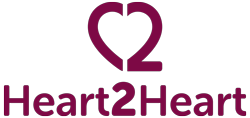Charity urges vigilance for heart defects missed by newborn screening
Children’s Heart Federation (CHF) welcomes the findings of the Pulse Oximetry Screening Study published in The Lancet on Friday 5 August 2011 and urges the NHS to introduce this test as a routine activity before newborn babies are discharged from hospital, as an important strand in the detection strategy for congenital heart disease (CHD) alongside antenatal screening and postnatal physical examinations. At the same time, CHF highlights that these three detection methods combined still leave eight per cent of cases undiagnosed and calls on the NHS to alert healthcare professionals and parents to ‘Think HEART’ in order to spot the tell-tale signs of undetected CHD:
Energy & Eating – sleepy, quiet, too tired to eat, falling asleep during feeds?
Arterial Saturation – a blue, dusky or grey colour (normal oxygen saturations 95-100%)?
Respiration – breathing too fast or slow? (normally 40-60 breaths per minute)
Temperature – cold to touch – particulary hands and feet? ©
One in every 133 babies is born with congenital heart disease. For a third of these babies, the condition is life-threatening and early detection is vital. Most babies with heart problems are not diagnosed before birth, so it is crucial to recognise the signs of a baby with heart problems as soon as possible after birth, when certain undetected heart conditions can be fatal if left untreated.
CHF’s Chief Executive, Anne Keatley-Clarke, declares, “Pulse oximetry testing is safe and inexpensive and should be routine. But it is not the end of the story. Healthcare professionals should be using the opportunity of all the screening methods to involve parents in the medical care of their child. The cases of CHD missed by screening need the powerful combination of vigilant, informed parents and healthcare professionals prepared to take their concerns on board.”
CHF Family Services Manager, Samantha Johnson, says, “ The Think HEART message gives parents the knowledge and confidence to act on informed instincts when something is wrong with their baby. Thinking HEART doesn’t need years of medical training or state-of-the-art equipment. First-time parents who notice that their baby’s hands and feet are cold, or that the baby seems hungry but too exhausted to feed, can flag this up to the health team. ”
Dr. Joan LaRovere, Director of Royal Brompton Hospital’s (RBH) Paediatric Intensive Care Unit, who pioneered the Think HEART initiative in 2009, says, “Think HEART gives health professionals not specifically trained in cardiology the skills, knowledge and confidence to spot potential heart problems in newborn babies. It will also empower parents to spot any potential health problems at home and will hopefully give them the confidence to take action.”
Samantha Johnson concludes, “We sometimes hear horror stories from parents who have gone through the hell of seeing their baby becoming weaker and sicker because of an undetected heart problem at the same time as being accused of neglecting their baby. If the NHS routinely uses pulse oximetry screening together with Think HEART, babies will get the special care they need early and parents will be saved some terrible stress.”
Ends
Notes for Editors:
- We can provide interviews on the topics covered in this news release.
- The Children’s Heart Federation (CHF) is the UK’s leading children’s heart charity and an umbrella organisation for 21 member groups which support heart children and their families. CHF supports families through its information service, small grants programme, peer support events and provision of equipment. The charity also lobbies for changes to the health, social care and education systems for the benefit of heart families (see www.chfed.org.uk)









